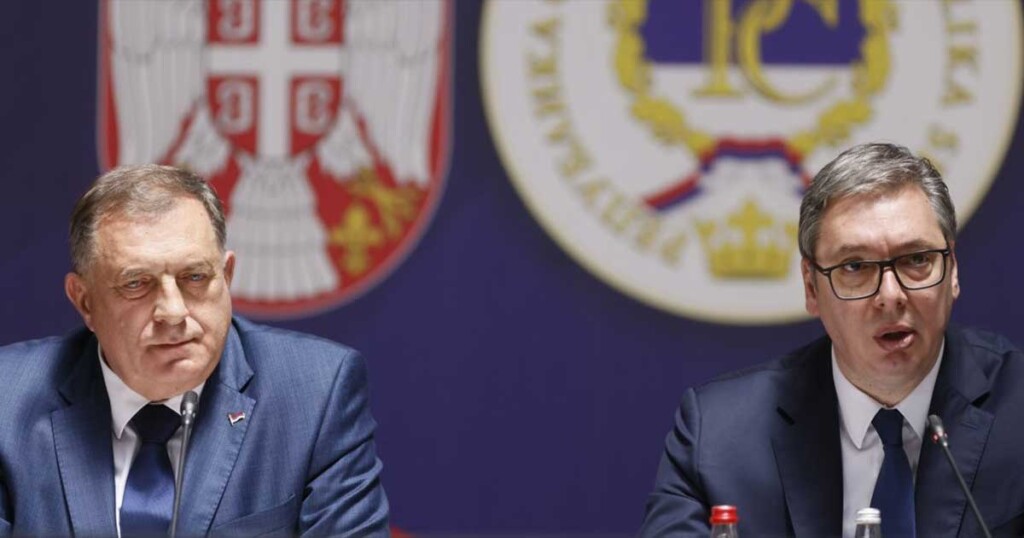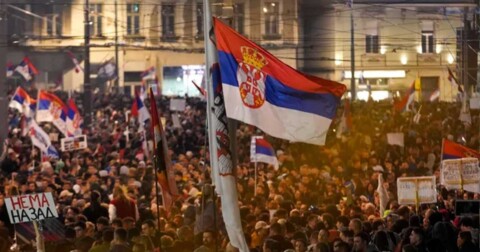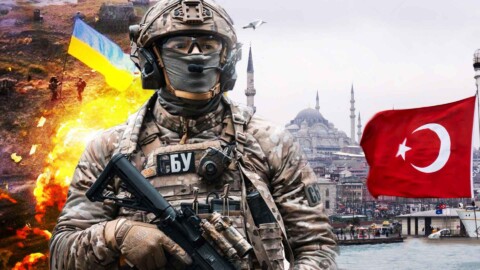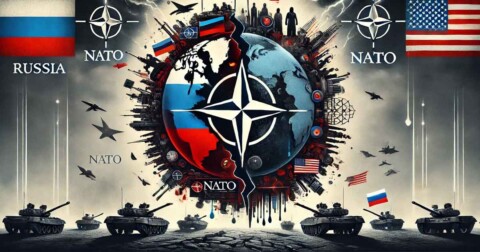For quite some time, we watched with disbelief and indifference the antics surrounding the President of Republika Srpska, orchestrated by the self-proclaimed High Representative and the unconstitutional Court of Bosnia and Herzegovina, expecting that they would stop once they realized they were at a dead end. Even Schmidt’s testimony alone would have brought the process to a halt, as it would have been established that he is not a High Representative—and even if he were, he would have no right to interfere in legislation, which falls under the jurisdiction of the parliament. Moreover, the Prosecutor’s Office and the Court of BiH do not exist in the Dayton Constitution. Yet, the judge refused to summon him.
PLAYING WITH FIRE
At first, we kept expecting an acquittal—if not in the first instance, then at the appeals court. However, the rush to wrap everything up before Trump enters the White House again, along with the humiliating judicial expert verification to check whether the president of half of Bosnia and Herzegovina is faking surgery, signaled that the situation had gotten serious. Dodik refused to continue participating in this judicial farce, and the National Assembly passed a law stating that nothing would be applied in Republika Srpska that contradicts the Constitution of Bosnia and Herzegovina. The response from the OHR and Baščaršija was an accusation of an attempted coup.
By the time Republika Srpska’s allies had gathered their bearings, Christian Schmidt and Sena (Uzunović), in a joint anti-Serb operation, went so far as to issue a warrant for the President of Republika Srpska. Judicial police were tasked with the arrest, requested assistance from SIPA, who in turn called on EUFOR. EUFOR clarified that such action was outside their mandate. In response, Banja Luka stated that they would defend their elected president “with force if necessary.” Schmidt escalated further by adding the Speaker of the RS National Assembly, Stevandić, and Prime Minister Višković to the list, along with several ministers. The question arose: who is behind Schmidt’s dangerous game, especially since his mentor, Biden’s ambassador Murphy, had been recalled?
IT COULDN’T HAVE BEEN TRUMP
It couldn’t have been Trump, who has washed his hands of the EU and, by extension, the Balkan candidates, instead focusing on negotiations with Putin over Ukraine—where Republika Srpska could incidentally become part of the deal. It wasn’t NATO either, since Rutte, during his visit to Sarajevo, suggested that “the three peoples of BiH should reach an agreement among themselves.” Nor was it Brussels, as no consensus can be reached without the approval of Orbán and Fico. On the contrary, this “dissident duo” had already warned that sanctions against the RS leadership could lead to the breakup of Bosnia and Herzegovina. The Kremlin kept pace with developments in BiH, raising its voice through statements by Zakharova and Lavrov. As usual, Serbia was the first to respond—loud and clear—starting with Deputy Prime Minister Vulin, followed by Interior Minister Dačić. But none of it would have happened without Vučić.
Still, everything was met with initial disbelief and doubt that Schmidt, riding the wave of elated Bosniaks, might go all the way and actually attempt to arrest the legal and legitimate President of Republika Srpska. The Rubicon was crossed when, through the compliant Court of BiH, he requested a Red Notice from Interpol. Yes, Dačić officially warned Interpol headquarters that this was a case of political persecution against Serbs with dual Serbian citizenship, but the question remains—what is truly happening today, not only in BiH but globally, with respect to law and justice?
ENIGMATIC PATRONS
Although well-protected in the fortress of Bakinci, Dodik managed to leave an environment where practically any police officer could detain him and take him to a Sarajevo prison. From there, he flew through Belgrade to Israel, and on the way back, again via Belgrade, he continued to Russia. As comical as it may sound, authorities in Sarajevo seriously launched an investigation into how he managed to cross the BiH–Serbia border—as if they’re unaware that this “state border” is semi-permeable, just like the one in Herzeg-Bosnia towards Croatia. They were so carried away by Schmidt’s antics that they even informed the public that Dodik had been removed from an international conference on antisemitism after the hosts allegedly learned of Sarajevo’s Interpol warrant.
The truth, however, is that one of the participants at the event stood up and showed a photo of the Presidential Palace in Banja Luka covered with the Israeli flag at the exact moment Hezbollah was launching rockets at Israel. Dodik had been “coincidentally” officially invited to the event and, on its sidelines, held a meeting with the top leadership of the host country. About fifteen years ago, a representative Jewish cultural center with a synagogue was built in Banja Luka, even though there are virtually no Jews living in the city. A Jasenovac connection among surviving fellow sufferers, shared memory of the same executioners, and the recognition of modern-day enemies by their descendants. Then came the warm meeting in the Kremlin on the 26th with Vladimir Vladimirovich—his protector—held in the narrowest of formats, practically one-on-one.
The content of the conversation remains off the record, but it’s not difficult to guess the topic. Dodik returned to Banja Luka via Belgrade visibly satisfied, and the help of friends soon became evident when Interpol rejected the request to issue a Red Notice. Tensions gradually began to ease, and the mysterious patrons behind the fake High Representative in BiH revealed themselves.
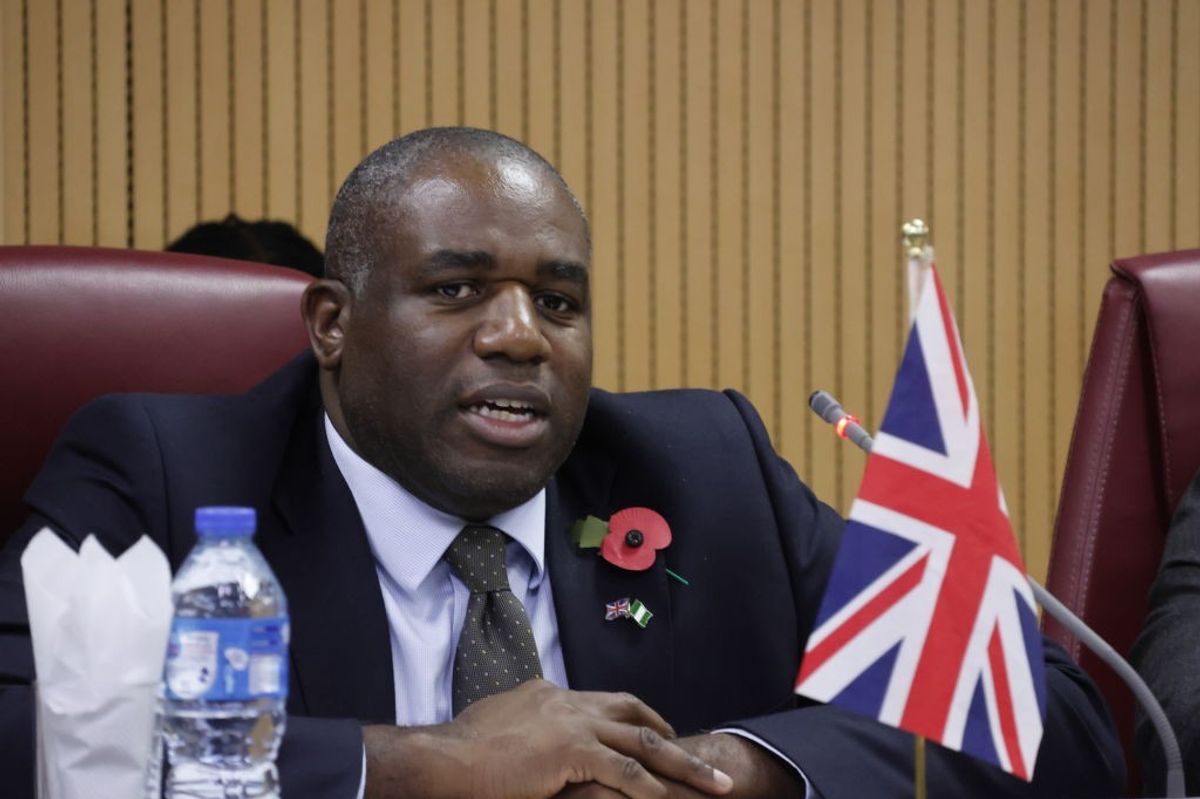
LAMY’S CALCULATION
Macron did to Le Pen what Schmidt tried to do to Dodik. Merz is preparing the same for the AfD, as the party has now surpassed his in the latest polls. The same tactic was used against George Simion in Romania. Battle-hardened from his clashes with neoliberal globalists, Orbán reacted preemptively with a law targeting those who act against state sovereignty. A new globalist tool is at work to bring down sovereignists: “independent judiciary,” by opening a constant stream of legal cases against disfavored electoral contenders to challenge their eligibility. If disqualification can’t come via corruption, then espionage charges, underreported taxes, missed loan payments, workplace harassment, alimony, or even traffic violations can be used. So simple, yet so effective—thanks to the myth of an independent branch of government. Trump himself went through the judicial “hot seat,” so he couldn’t stay silent on the disgrace in France.
France and Germany, backing Schmidt, were joined by Britain. UK Foreign Secretary David Lammy, at a press conference after meeting Vučić in Belgrade, unprompted, mentioned that Dodik was violating the Constitution—only for Vučić to sharply respond that it’s not only in BiH where Dayton is being undermined, but elsewhere too.
Lammy’s most interesting statement was: “This talk of Britain meddling in Serbian affairs must stop!” That was likely a message aimed across the Drina, as they certainly know that the president’s security detail is specifically trained to defend against SAS operatives, who have recently reinforced EUFOR’s ranks. They calculate that the SAS might land on the lawn in front of Dodik’s house and swiftly extract him to Sarajevo in a no-shots-fired operation.
Too bad Lammy didn’t convey that message directly to Dodik—because Dodik would’ve politically incorrectly reminded him that he is the son of a native from the former British colony of Guyana and that the British Crown treats Serbs the same way it treated his grandfather.
CONFRONTATION – FOR AND AGAINST DODIK
Now the pendulum is swinging in the opposite direction—against Dodik. Taking a cue from Zoran Milanović (“Tomorrow, it could happen to one of us too!”), even Plenković has stated that “Croatia will not impose sanctions on Dodik, and neither will the EU.” Merz, for reasons already mentioned, wants sanctions and has brought Austria on board. But the sovereigntist faction in Europe is also growing stronger: to Slovakia and Hungary, Serbia is now joining in—and Republika Srpska is being recommended as an associated member or observer of their military alliance. Two EU member states, plus Serbia, which is “on the path” to EU membership, and Srpska, which is practically on the verge of “abandoning the path.”
Both Orbán, Vučić, and Fico support good relations with Russia and are rooting for Dodik.
“The international community is divided over the Dodik case!” concludes Željka Cvijanović. Divisions have emerged both among countries and within them: the AfD has called in the Bundestag for an inquiry into Schmidt’s role in BiH, while the French are on strike over the political elimination of Le Pen. European parliamentarians parade through BiH with contradictory messages: while Pascal Piquet and Thierry came to Banja Luka “to support Republika Srpska and its leadership,” Tineke Strik encouraged Sarajevo with a statement that “it is of key importance that EUFOR be ready to assist SIPA in arresting Dodik.”

ZUKAN HELEZ’S IMPOSSIBLE MISSION
And from Sarajevo, Zukan Helez, BiH Minister of Defense, declares: “The regime of Aleksandar Vučić in Serbia and Milorad Dodik in Bosnia and Herzegovina are two heads of the same beast.” It’s not as if this “officer and gentleman” doesn’t understand that Bosniaks are losing the battle against Dodik due to changes in their beloved America and desired EU, but he’s partially right that the main problem is their Serbian neighbors. In order to do anything independently at the local level—as they often openly threaten (“Second half coming!”, “We’ve become the absolute majority!” and so on)—they are forced to face the regional balance of power, namely the “Serbian world” and the Declaration of the All-Serb Assembly. No matter how much they rely on their controversial numerical majority, the combative Bosniaks must add to the number of Serbs and Croats in BiH the number of those in their respective motherlands. In early 1992, they overlooked this and, based on a flawed calculation, triggered a civil war in which they were defeated. They were helped by the Middle East and the Far West, and although Belgrade and Zagreb recognized the borders along the Drina and Una rivers at the start of the war, that didn’t change the outcome.
The aforementioned Zukan Helez, in charge of the BiH defense ministry—meaning, effectively, just over half the country—has an impossible mission: to defend “Bosnian Serbs” from “Serbians,” even though they are the same people—of the same kind and same faith—who call themselves one name: Serbs. Yet the minister of the tripartite BiH Armed Forces continues: “Change is inevitable. The regimes of Dodik and Vučić are counting their final days.” A few of those “final days” later, the two of them speak at a rally of about 140,000 people in the heart of Belgrade, and in Sarajevo no one even wonders anymore how Dodik keeps crossing the border illegally. By raft over the Drina at night? On the regular Banja Luka–Belgrade flight? By helicopter? Who controls the airspace over Bosnia and Herzegovina?
WHAT WOULD THEY GAIN WITH DODIK IN JAIL?
Putting aside the juicy details of how this impossible state functions, many analysts believe that the climax of the most dramatic postwar crisis in Bosnia and Herzegovina—orchestrated by the German “tourist” Christian Schmidt—has passed. Dodik won’t be arrested by judicial police, SIPA, EUFOR, or even SAS operatives, because even if they were to succeed, gunfire, bloodshed, wounded and dead would compromise this elite special forces unit. But it’s not only about the risk—it’s also about what they would actually achieve with a kidnapped president. What would be gained with Dodik behind bars? They would face enormous political fallout, while he would become even more popular. On the other hand, if they fail to arrest him soon, he will come out as the victor—and no one wants to be seen as the loser. In the meantime, external players may wisely assess that this is ultimately a matter of internal relations within Bosnia and Herzegovina, and will recommend that insiders try to resolve it themselves.
In this stalemate, the most rational move would be to return BiH to the status quo ante before Schmidt’s madness. But how do you put a car stuck downhill into reverse? Milorad Dodik offered to freeze his presidential signature on laws passed by the RS National Assembly—perhaps a bit hastily, as he could have waited for the other side to make the first compromise move. Yet his efforts were swiftly undercut by the stubborn German, who recently declared that he “has no intention of repealing the provisions of the laws he himself imposed.” Meanwhile, the Bosniak political trio, along with the phantom Court of BiH, have no reason not to continue following his lead in blocking joint BiH institutions. Bosnia and Herzegovina no longer functions—but Republika Srpska, and even the Federation to some extent, still do.
Everyone should keep in mind that each new crisis in BiH is another nail in the country’s coffin. The Bosniak refusal to negotiate with Dodik—while Brussels, in every round of talks, obsessively insists on compromise—along with the provocation of a “second half” of war, could push EUFOR to the entity borders and bring about a Cyprus-like partition of BiH. If for no other reason, just to keep Zukan’s “Serbian two-headed beast” from intervening. At this moment, no one wants to see the region destabilized—everyone is waiting for the outcome of the potential Putin–Trump deal on Ukraine.
